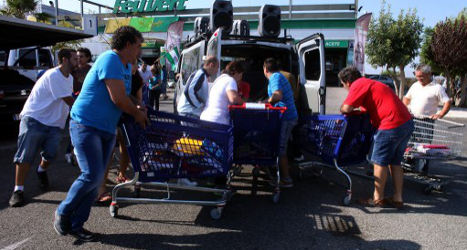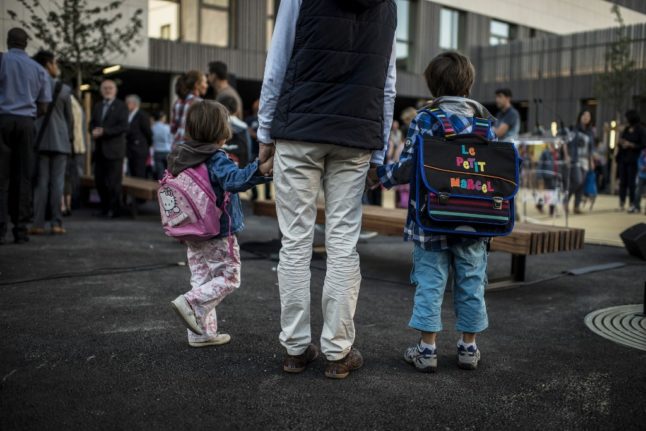After alerting media, more than 200 members of the Sindicato Andaluz de Trabajadores (Andalusian Union of Workers) emerged from a Carrefour supermarket in the southern city of Seville pushing about 10 shopping carts brimming with exercise books, pens, felt-tips and dictionaries, said an AFP photographer at the scene.
They loaded the back-to-school supplies into vans and left.
Spain's Interior Ministry vowed to identify and detain members of the union who "robbed" the supermarket so as to bring them to justice.
"The Interior Ministry will act severely and firmly in this matter," a ministry spokesman said.
Carrefour was not immediately available for comment.
The activists' union, led by Juan Manuel Sanchez Gordillo, a controversial mayor of the Andalusian town of Marinaleda and a member of the regional parliament for the Communist, pro-environment party Izquierda Unida, organised a similar theft last year.
Read The Local's in-depth profile of Juan Manuel Sanchez Gordillo — Spain's answer to Robin Hood.
School materials "expropriated" this time would be given to needy families in the next few days, the union said in a statement, describing it as a "symbolic act for equal opportunity".
"We want to draw attention to the situation of the two million Andalusians in poverty and the 400,000 families who receive no aid or benefit and have all members unemployed," it said.
After the summer holidays, some 3,300 nursery, infant, primary and secondary schools are to reopen in September in Andalusia, one of the regions hardest hit by the Spanish economic crisis.
Its unemployment rate is 35.8 percent, well above the already elevated national rate of 26.26 percent.



 Please whitelist us to continue reading.
Please whitelist us to continue reading.
Member comments